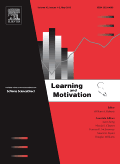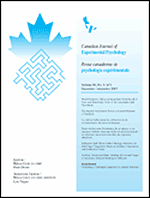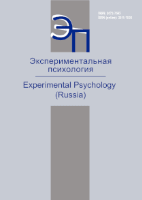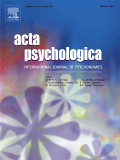
APPLIED COGNITIVE PSYCHOLOGY
Scope & Guideline
Bridging Cognitive Theory and Practical Impact
Introduction
Aims and Scopes
- Memory and Eyewitness Testimony:
Investigates how memory functions in eyewitness situations, including the reliability of eyewitness accounts, factors affecting memory recall, and the implications of suggestibility and misinformation. - Learning and Educational Psychology:
Explores cognitive processes related to learning, including the effectiveness of teaching methods, the role of metacognition, and strategies to enhance student learning outcomes. - Cognitive Load and Information Processing:
Focuses on how cognitive load influences learning and decision-making, examining the impact of various instructional designs and multimedia on cognitive engagement. - Deception and Credibility Assessment:
Studies the psychological underpinnings of deception, including the ability to detect lies, the influence of contextual factors on credibility, and the accuracy of various interrogation techniques. - Applied Contexts of Cognitive Research:
Examines the application of cognitive principles in diverse fields such as law enforcement, healthcare, and education, highlighting how cognitive psychology can inform practice and policy.
Trending and Emerging
- Impact of Technology on Cognition:
There is an increasing focus on how digital environments and technology, such as smartphones and online learning platforms, influence cognitive processes, learning, and memory. - Conspiracy Theories and Misinformation:
A notable trend is the exploration of cognitive factors related to belief in conspiracy theories and misinformation, especially in the context of social media and public health crises like COVID-19. - Cognitive and Emotional Interactions:
Research examining the interplay between cognition and emotions, particularly in terms of how emotional states affect memory, decision-making, and learning processes. - Cultural and Contextual Influences on Cognition:
Emerging studies are increasingly considering how cultural contexts and social environments shape cognitive processes, leading to more nuanced understandings of cognition across diverse populations. - Applications in Forensic Psychology:
The journal is seeing a rise in research that applies cognitive psychology principles to forensic contexts, particularly regarding eyewitness testimony and interrogation techniques.
Declining or Waning
- Traditional Memory Models:
Research on traditional models of memory, such as the multi-store model, has decreased as the field shifts towards more dynamic and contextual understandings of memory processes. - Basic Cognitive Processes:
Studies focused solely on basic cognitive processes, like simple reaction time tasks, have seen less prominence, as the journal emphasizes more applied and complex interactions of cognition with real-world phenomena. - Static Assessments of Learning Strategies:
Research centered around static or one-dimensional assessments of learning strategies has diminished, with a growing preference for studies that consider the context and adaptability of learning approaches.
Similar Journals

PSYCHOLOGICAL RESEARCH-PSYCHOLOGISCHE FORSCHUNG
Uncovering the intricacies of psychological phenomena since 1974.Psychological Research – Psychologische Forschung is a renowned interdisciplinary journal published by Springer Heidelberg, operating from Germany. As a key publication in the field of psychology, particularly spanning areas such as experimental and cognitive psychology, developmental and educational psychology, and arts and humanities, this journal has made significant contributions to the advancement of psychological science since its inception in 1974. With an impressive impact reflected through its Q1 and Q2 categorizations across various fields, it occupies a prominent position in Scopus rankings, notably ranked #35 in Experimental and Cognitive Psychology. Researchers, professionals, and students alike benefit from its rich repository of original empirical studies, reviews, and methodological advancements. Whether you're seeking to contribute to your field or stay abreast of the latest developments, Psychological Research provides a crucial platform for disseminating innovative psychological knowledge. With a convergence of research years leading to 2024, the journal continues to evolve, maintaining its relevance and excellence within the academic community.

LEARNING AND MOTIVATION
Innovating Research in Learning ProcessesLEARNING AND MOTIVATION is a premier academic journal published by Academic Press Inc. Elsevier Science, dedicated to advancing the scientific understanding of learning processes and motivational dynamics across various contexts. With an ISSN of 0023-9690 and an E-ISSN of 1095-9122, this journal has been a vital resource since its inception in 1970 and continues to publish impactful research until 2024. The journal is ranked in the Q2 and Q3 categories across multiple disciplines including Developmental and Educational Psychology, Education, Experimental and Cognitive Psychology, and Neuropsychology, reflecting its significance in the educational and psychological research landscape. The journal's current Scopus rankings illustrate its broad influence, with a noteworthy position in the 62nd percentile in Education. Notably, LEARNING AND MOTIVATION is not open access, which may appeal to institutions and researchers who value traditional publishing models. This journal serves as an essential platform for scholars, educators, and practitioners aiming to explore innovative approaches to learning and motivation, fostering a deeper understanding of cognitive and social factors that enhance educational outcomes.

CANADIAN JOURNAL OF EXPERIMENTAL PSYCHOLOGY-REVUE CANADIENNE DE PSYCHOLOGIE EXPERIMENTALE
Connecting Minds: Bridging Research and PracticeCanadian Journal of Experimental Psychology / Revue canadienne de psychologie expérimentale (ISSN 1196-1961, E-ISSN 1878-7290), published by the Canadian Psychological Association, serves as a vital resource in the fields of Experimental and Cognitive Psychology and general psychological research. With a respectable impact factor that places it in the Q3 category for both Experimental Psychology and miscellaneous Medicine (2023), this journal offers a platform for innovative research that furthers our understanding of psychological processes. Spanning years from 1993 to 2024, it connects researchers, professionals, and students to contemporary findings and methodologies, fostering a collaborative environment for the advancement of psychological science. Though it does not currently offer Open Access, the journal's commitment to quality and relevance in psychological research continues to make it an important part of the academic landscape, supporting the dissemination of knowledge within a global community.

Eksperimentalnaya Psikhologiya
Advancing the frontiers of psychological research.Eksperimentalnaya Psikhologiya is a prominent open-access journal published by the Moscow State University of Psychology and Education, dedicated to advancing the field of psychology. Since its inception, the journal has offered a platform for the dissemination of innovative research in Experimental and Cognitive Psychology, as well as Neuropsychology and Physiological Psychology. The journal's commitment to open access, initiated in 2015, ensures that valuable research findings are freely available to scholars and practitioners worldwide. Although currently categorized in the Q4 quartile for 2023 within several psychology disciplines, it plays a vital role in promoting a diverse range of psychological studies and fostering interdisciplinary collaboration. With a focus on experimental methodology and cognitive processes, Eksperimentalnaya Psikhologiya provides a valuable resource for researchers, professionals, and students seeking to deepen their understanding of psychological science. The journal invites contributions from across the globe, particularly in the evolving landscapes of experimental techniques and neuropsychological research.

Cognitive Computation and Systems
Pioneering Research at the Crossroads of Thought and Technology.Cognitive Computation and Systems is an innovative open-access journal published by Wiley, dedicated to advancing the fields of Artificial Intelligence, Cognitive Neuroscience, and Computer Science Applications. Based in the United Kingdom, this journal has established itself as a key resource for researchers, students, and professionals alike since its inception in 2019. With a focus on the convergence of cognitive theories and computational methodologies, Cognitive Computation and Systems aims to publish high-quality research that bridges holistic cognitive processing with algorithmic design. Although the journal is currently categorized in the lower quartiles of its fields, it provides a unique platform for disseminating pioneering ideas that can drive the vital intersection of computer vision, pattern recognition, and psychology. Scholars can take advantage of its open-access model, ensuring that research findings are freely available, thus promoting wider knowledge sharing and collaboration within these rapidly evolving domains. With its ambitious scope and commitment to quality, this journal is poised to make a significant impact in its respective fields.

EXPERIMENTAL PSYCHOLOGY
Unveiling the complexities of the mind with rigorous research.EXPERIMENTAL PSYCHOLOGY is a premier journal dedicated to advancing the field of psychology through rigorous empirical research and innovative theoretical insights. Published by HOGREFE PUBLISHING CORP, this esteemed journal features an array of studies that delve into cognitive processes, experimental methodologies, and the intricate workings of human behavior. With a significant impact factor, EXPERIMENTAL PSYCHOLOGY holds a Q1 ranking in Arts and Humanities and maintains a commendable presence in the realms of Experimental and Cognitive Psychology. By providing Open Access options, the journal ensures that vital psychological research is widely accessible, fostering collaboration and knowledge sharing among researchers, practitioners, and students worldwide. Based in the United States, it has been a cornerstone of psychological literature since 1998, continuing to shape the discourse in its diverse and interdisciplinary scope. Researchers seeking to contribute to or stay informed about the latest advancements in psychological science will find EXPERIMENTAL PSYCHOLOGY an invaluable resource.

ACTA PSYCHOLOGICA
Connecting researchers with transformative psychological insights.ACTA PSYCHOLOGICA, published by Elsevier, is a leading journal that has served the field of psychology since its inception in 1936. With an impact factor that reflects its authority and significance in the discipline, this journal has become essential for researchers, professionals, and students alike. Open Access since 2021, ACTA PSYCHOLOGICA ensures that groundbreaking psychological research is widely accessible, promoting the dissemination and application of knowledge across various branches of psychology including Developmental and Educational Psychology and Experimental and Cognitive Psychology. The journal is categorized in the Q1 and Q2 quartiles, highlighting its high-quality contributions to the field, supported by robust rankings within Scopus. Located in Amsterdam, Netherlands, this journal remains a vital resource for advancing psychological science and fostering collaborative research worldwide.

JOURNAL OF EXPERIMENTAL PSYCHOLOGY-GENERAL
Shaping the Future of Psychological ScienceJOURNAL OF EXPERIMENTAL PSYCHOLOGY-GENERAL, published by the American Psychological Association, is a leading journal in the field of experimental and cognitive psychology. With an ISSN of 0096-3445 and a robust impact factor that reflects its significant contribution to research, this journal serves as a premier outlet for empirical studies that advance our understanding of psychological processes across development and cognition. Covering a wide array of topics from developmental neuroscience to general psychology, it is categorized in the Q1 quartile across multiple fields, making it a vital resource for researchers, professionals, and students alike. The journal has maintained a consistent publication record since its inception in 1975, continuously freeing insights that shape the future of psychology and related disciplines. With rigorous peer review and high standards of scholarly excellence, JOURNAL OF EXPERIMENTAL PSYCHOLOGY-GENERAL remains an essential platform for disseminating innovative psychological research.

COGNITION & EMOTION
Exploring the Nexus of Thought and FeelingCOGNITION & EMOTION is a leading academic journal published by Routledge Journals, Taylor & Francis Ltd, focusing on the dynamic interactions between cognitive processes and emotional responses. Established in 1987, this esteemed journal has made significant contributions to the fields of Arts and Humanities, Developmental and Educational Psychology, and Experimental and Cognitive Psychology, consistently ranking in the top quartile (Q1) across various categories. Housed in the United Kingdom, COGNITION & EMOTION boasts a remarkable impact factor, underscoring its influence and importance in advancing psychological research and theory. While this journal does not offer open access, it remains a vital resource for scholars, professionals, and students seeking to deepen their understanding of emotional and cognitive phenomena. With a commitment to rigorous peer-reviewed research and innovative insights, COGNITION & EMOTION is essential for anyone aiming to stay at the forefront of psychological studies.

Journal of Cognitive Education and Psychology
Exploring the Intersection of Mind and EducationWelcome to the Journal of Cognitive Education and Psychology, an esteemed publication under the SPRINGER PUBLISHING CO, based in the United States. With an ISSN of 1945-8959 and an E-ISSN of 1810-7621, this journal serves as a vital platform for the dissemination of research and scholarly discourse in the fields of cognitive education, developmental psychology, and experimental psychology. Despite its Q4 rankings in the 2023 category quartiles across educational and psychological disciplines, the journal has rapidly built a reputation for contributing significant insights to the development and understanding of cognitive processes in educational settings. While operating under a subscription model, the journal aims to provide quality peer-reviewed articles that foster knowledge exchange among researchers, practitioners, and students. As it converges from the years 2017 to 2022, the journal seeks to bridge the gaps between educational psychology theories and practical application, ensuring that the findings and discussions within its pages can directly inform effective educational practices.